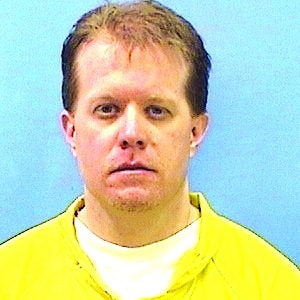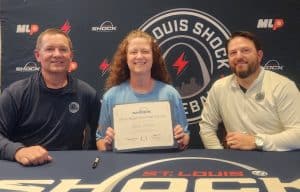Judge enters order in Coleman case

Judge Stephen McGlynn officially entered his order last Tuesday in the Christopher Coleman case, dismissing all further motions by Coleman in his post-conviction relief petition process.
In his written opinion, McGlynn recapped the case that began over two years ago – including Coleman’s arguments for why his constitutional rights had been violated and McGlynn’s judgment on those matters.
“In making a determination whether a defendant has received a fundamentally fair trial, the evidence must be viewed as a whole,” McGlynn wrote. “The evidence of guilt in this case is overwhelming. Whatever deficiencies in counsels’ performance might be found to exist, the overwhelming nature of the remaining evidence establishes that there is no reasonable likelihood that a jury would have returned a not guilty verdict. (Coleman) received a fundamentally fair trial and the verdict rendered was reliable. Counsel were not ineffective in failing to do so, nor was (Coleman) prejudiced thereby. For these reasons, (Coleman’s) petition and its supplements are dismissed.”
Coleman is currently serving three concurrent life sentences in the Wisconsin Department of Corrections for the May 5, 2009 murders of his wife, Sheri and sons Garret, 11, and Gavin, 9, in Columbia.
Throughout the post-conviction relief process, Coleman’s main arguments have been that prejudicial metadata, which is information about other data, attached to the back of photo evidence and ineffective counsel violated his rights enough to warrant a new trial.
After an evidentiary hearing on the metadata last April, McGlynn ruled against Coleman, which he reiterated in his opinion.
“The file data and the photos were not prejudicial, particularly in light of the overwhelming evidence of guilt that was proven at trial,” McGlynn wrote in his order.
For his claim of ineffective counsel, Coleman has argued his original defense attorneys could have utilized a number of different strategies like questioning DNA evidence further.
Coleman said the fact his attorneys did pursue such avenues showed they were not effective to the point that their conduct violated his Sixth Amendment rights.
McGlynn disagreed.
“Defense counsel conducted a vigorous defense both during and before trial,” he ruled. “In hindsight they might have done some of the things that (Coleman) suggests should have been done, but their failure to do so was largely a matter of trial strategy and was not objectively unreasonable. There was not substantial breakdown in the adversarial process.”
Finally, Coleman also claimed in his initial petition that he is innocent of the murders. McGlynn also dismissed that motion.
“(Coleman) has failed to support this contention with any new evidence,” McGlynn wrote. “Instead, his argument is that the evidence against him is insufficient to establish guilt beyond a reasonable doubt when one takes into account what he alleges defense counsel should have done. Such an argument is not enough to establish actual innocence. To prove a claim of actual innocence, a defendant must allege facts that exonerate him of his crime. (Coleman) has failed to offer any such evidence.”
Coleman can still appeal McGlynn’s ruling to the Illinois Appellate Court.






